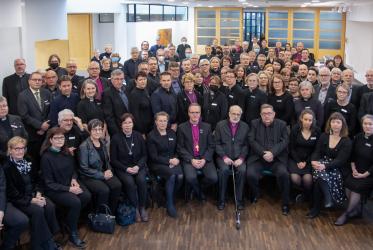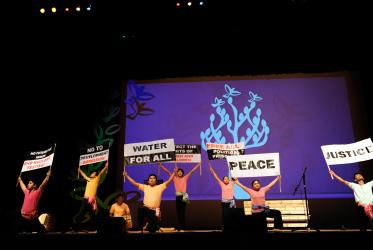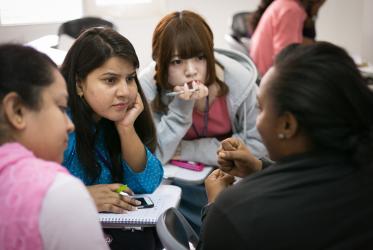Displaying 1 - 20 of 28
Hanbeet Rhee: “Young people can be bridges”
17 October 2019
Thursdays in Black: sharing support, transforming lives
21 February 2019
Ecumenical School on Governance, Economics and Management (GEM) for an Economy of Life
19 - 30 August 2019
Jakarta, Indonesia
Determined to make a difference
18 April 2018
Plans for 2017 decided by WCC Executive Committee
01 December 2016
New videos help congregations hasten HIV response
20 October 2016















